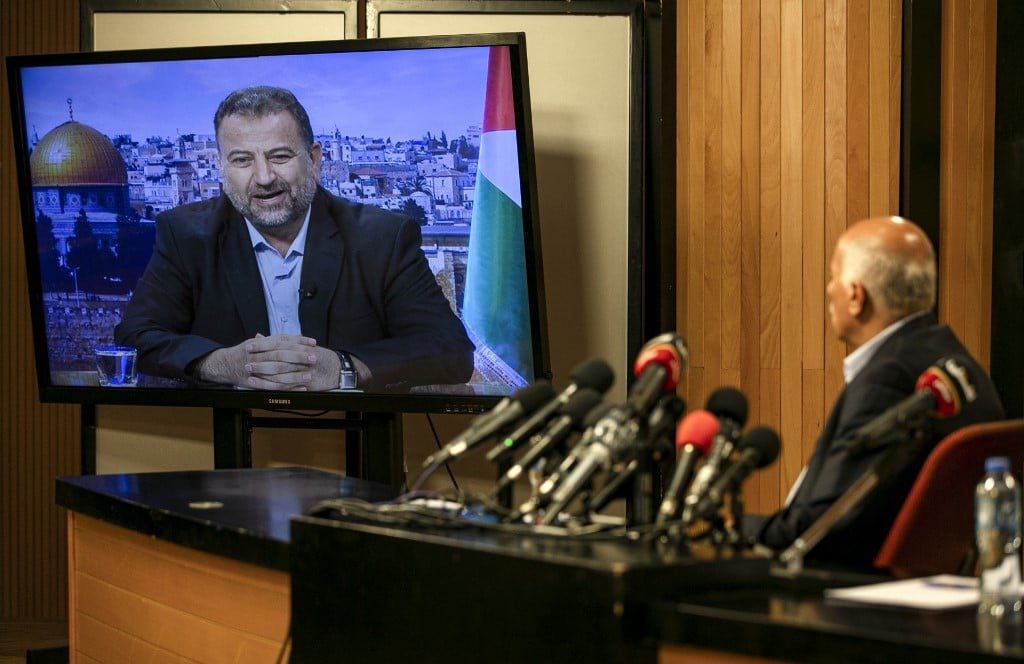
Majed Kayali
Palestinians had high hopes for the possibility of reconciliation endeavors succeeding between Fatah and Hamas, to recover the Palestinian unity. By signing such a reconciliation, Palestinians also hope to set the Palestinian Liberation Organization (PLO) in motion. In addition, they aspire saving the national Palestinian movement from the crisis it is experiencing across all fronts.
On the 2nd of last July, the process began with a video conference meeting held between the Fatah prominent leader Jibril Rajoub and the Hamas well-known figure Saleh al-Arouri. These efforts were reinforced by another video conference meeting organized on the 3rd of September for the 14 Palestinian factions in Ramallah and Beirut. According to the statements of Rajoub and al-Arouri, the process has resulted in raising the hope for putting an end to this absurd, painful and harmful file.
Ultimately, the outcome of this attempt was just another failure like all previous attempts. The same happened for other attempts in Mecca, Sana’a, Doha, Cairo and Gaza for 13 years without reaching a reliable outcome.
The failure of this most recent attempt increased the Palestinians’ frustration. The reason behind this failure can be attributed to several points. The most significant one is that Hamas and Fatah turned into independent authorities in their regions. As a result, the West bank is a stronghold of Fatah while Gaza is the one of Hamas. Consequently, it is illogical – not to mention the lack of confidence – that either Fatah or Hamas would give up their authorities. Secondly, both parties are not in agreement regarding the next step. On Hamas’ side, the priority is to organize elections for all Palestinians. In turn, Fatah focuses on organizing elections for the Palestinian Legislative Council. Thirdly, what happened is one manifestation of the intractable crisis in the Palestinian national movement. In other words, it expresses the crisis in discourses, entities, forms of actions and relations.
It is worth mentioning here that this attempt, which every Palestinian wished to succeed, came very late. In fact, Fatah and Hamas didn’t work at all previously to prepare themselves or to prepare the Palestinian people to face the current challenges. Therefore, what happened was nothing but an attempt to reconcile and divide the authority between Fatah and Hamas, which neither adds nor changes the Palestinian situation.
It is apparent that Palestinian are going through harsh living, economic and security conditions inside. This situation worsens with the blockade of Gaza and the drain of resources in the West Bank. On the other hand, Palestinian refugees abroad became alienated and outside the political equation now that the center of influence was moved inside Palestine. Consequently, the Palestinian Liberation Organization (PLO) turned to be another Palestinian folklore or a platform merely used for trivial occasions. Regarding Palestinian Authority (PA), it is at its weakest due to division, the demise of legitimacy and the frailty of the Palestinian national movement structure. That applies to the both PLO and the Palestinian factions. Furthermore, there is a gap between the Palestinian communities and the leadership inside and out Palestine. This comes also in line with lack of Arab, territorial or international political support for the Palestinian cause in the light the current circumstances.
What is the solution? What is the alternative? Certainly no one dares to say that he/she has an all-encompassing solution in these circumstances. The complexity increases when we know that the Palestinian sphere became very difficult due to the absence of collective leadership and the lack of democratic relations. In addition, the national frameworks have been marginalized while the feel the absence of internal movements. In fact, we know that the Palestinian national crisis is a comprehensive one. That means that it is a crisis in thinking patterns, in structures, in relations and struggles forms as I explained before.
Unfortunately, the factions neither want to read reality, nor to admit their helplessness and lack of options to the people. They became just authorities in Gaza and the West Bank. In spite of that, these factions still persist to impose their existence while they have no value to add. Realizing this is the main condition to end the current Palestinian national crisis. It is obvious having a solution for this crisis requires in principle reconstructing the Palestinian movement.
In fact, putting an end to the Palestinian division, reconciling and recovering the Palestinian unity are necessary and required. However, these things are not enough. They will merely reproduce the national crisis, not to mention the gaps filling it, because solving this dilemma requires a lot more than that. It requires rebuilding the PLO on the basis of a comprehensive national vision, alongside a representative, democratic and electoral political process.
DISCLAIMER
The opinions expressed in this publication are those of our bloggers. They do not purport to reflect the opinions or views of Fanack or its Board of Editors.


